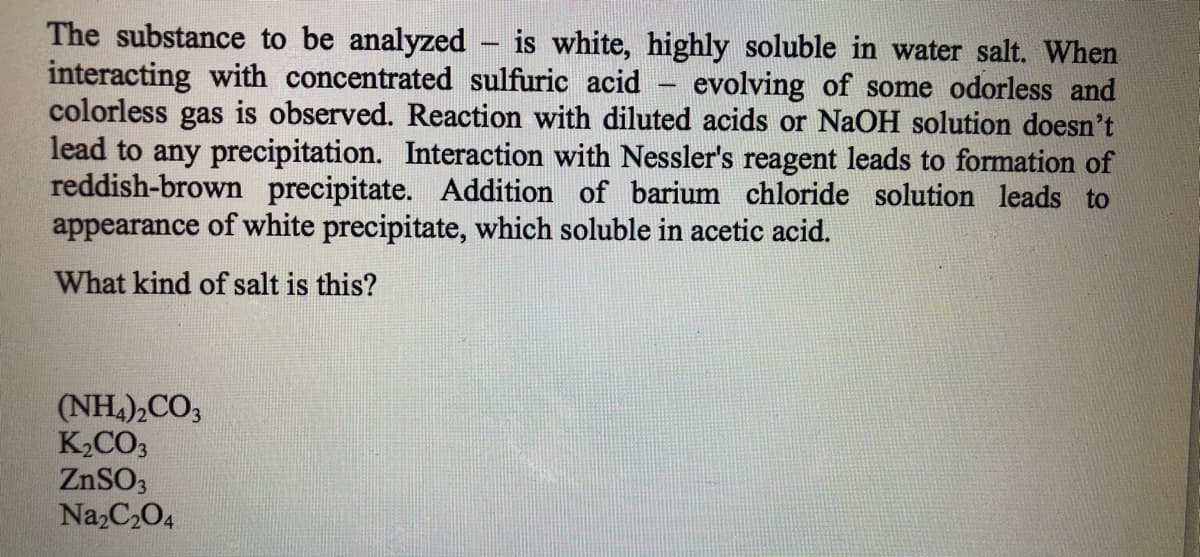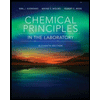The substance to be analyzed – is white, highly soluble in water salt. When interacting with concentrated sulfuric acid - evolving of some odorless and colorless gas is observed. Reaction with diluted acids or NaOH solution doesn't lead to any precipitation. Interaction with Nessler's reagent leads to formation of reddish-brown precipitate. Addition of barium chloride solution leads to appearance of white precipitate, which soluble in acetic acid. What kind of salt is this? (NH.),CO3 K2CO3 ZNSO3 Na,C204
The substance to be analyzed – is white, highly soluble in water salt. When interacting with concentrated sulfuric acid - evolving of some odorless and colorless gas is observed. Reaction with diluted acids or NaOH solution doesn't lead to any precipitation. Interaction with Nessler's reagent leads to formation of reddish-brown precipitate. Addition of barium chloride solution leads to appearance of white precipitate, which soluble in acetic acid. What kind of salt is this? (NH.),CO3 K2CO3 ZNSO3 Na,C204
Chemical Principles in the Laboratory
11th Edition
ISBN:9781305264434
Author:Emil Slowinski, Wayne C. Wolsey, Robert Rossi
Publisher:Emil Slowinski, Wayne C. Wolsey, Robert Rossi
Chapter34: Development Of A Scheme For Qualitative Analysis
Section: Chapter Questions
Problem 1ASA
Related questions
Question

Transcribed Image Text:The substance to be analyzed – is white, highly soluble in water salt. When
interacting with concentrated sulfuric acid - evolving of some odorless and
colorless gas is observed. Reaction with diluted acids or NaOH solution doesn't
lead to any precipitation. Interaction with Nessler's reagent leads to formation of
reddish-brown precipitate. Addition of barium chloride solution leads to
appearance of white precipitate, which soluble in acetic acid.
What kind of salt is this?
(NH,),CO3
K2CO3
ZNSO3
Na,C204
Expert Solution
This question has been solved!
Explore an expertly crafted, step-by-step solution for a thorough understanding of key concepts.
This is a popular solution!
Trending now
This is a popular solution!
Step by step
Solved in 2 steps

Knowledge Booster
Learn more about
Need a deep-dive on the concept behind this application? Look no further. Learn more about this topic, chemistry and related others by exploring similar questions and additional content below.Recommended textbooks for you

Chemical Principles in the Laboratory
Chemistry
ISBN:
9781305264434
Author:
Emil Slowinski, Wayne C. Wolsey, Robert Rossi
Publisher:
Brooks Cole

Chemical Principles in the Laboratory
Chemistry
ISBN:
9781305264434
Author:
Emil Slowinski, Wayne C. Wolsey, Robert Rossi
Publisher:
Brooks Cole